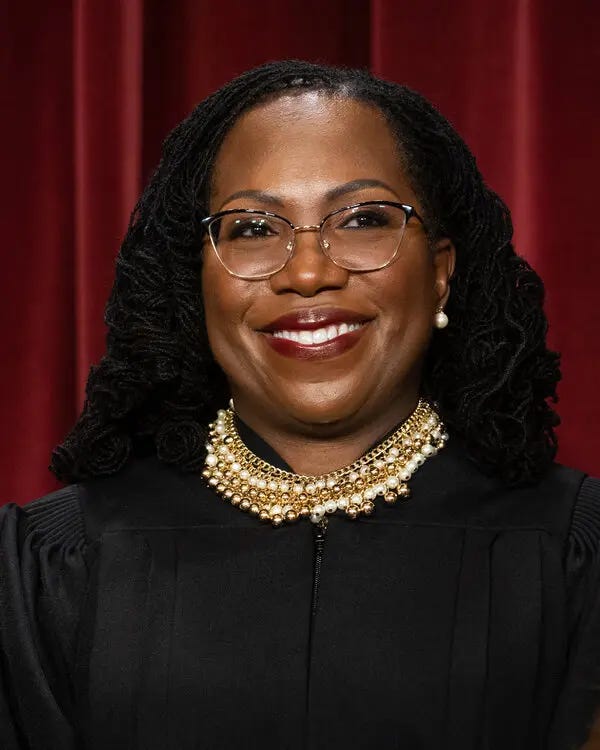From Harvard Halls to the Highest Bench
Ketanji Brown Jackson
Ketanji Brown Jackson's journey to the Supreme Court is a testament to resilience, brilliance, and a steadfast commitment to justice. Born in Washington D.C. in 1970, Jackson grew up in Miami, Florida, where her parents, both public school teachers, instilled a strong work ethic and a passion for learning. This thirst for knowledge led her to Harvard University, where she excelled in academics and extracurriculars, even co-founding the Harvard Journal of Black Policy.
Jackson's legal career began with clerkships for three esteemed judges, including Justice Stephen Breyer, whose seat she would later take. She then navigated the complexities of private practice and public service, gaining invaluable experience across diverse legal landscapes. Whether advocating for the wrongfully convicted as a federal public defender or tackling complex sentencing guidelines as a commissioner, Jackson consistently demonstrated her dedication to fairness and equal justice.
In 2013, President Obama appointed Jackson to the U.S. District Court for the District of Columbia, where she tackled groundbreaking cases on issues ranging from voting rights to campaign finance. Her meticulous legal mind and unwavering commitment to the law earned her a reputation for fairness and intellectual rigor. Just eight years later, President Biden nominated Jackson to the Supreme Court, recognizing her exceptional qualifications and historic potential.
Jackson's confirmation in 2022 broke an irrefutable barrier, making her the first Black woman to ever serve on the nation's highest court. This milestone, while symbolic, carries immense weight. As Jackson herself stated, "It's hard to imagine being told there are things you can't achieve... when you see somebody who looks like you doing things." Her presence on the bench inspires generations of young people and ensures a richer, more diverse perspective in interpreting the law.
Beyond her historical significance, Jackson's judicial philosophy centers around textualism and originalism, seeking to interpret the Constitution based on its original meaning and applying it consistently to contemporary issues. She is expected to be a thoughtful and independent voice on the court, engaging with her colleagues in a spirit of collegiality while remaining firmly committed to her convictions.
Ketanji Brown Jackson's story is an ongoing testament to the power of determination, the importance of representation, and the enduring American ideal of justice for all. Her journey from a young girl in Miami to the hallowed halls of the Supreme Court serves as a beacon of hope, reminding us that the pursuit of fairness and equality remains a cornerstone of our national narrative.


